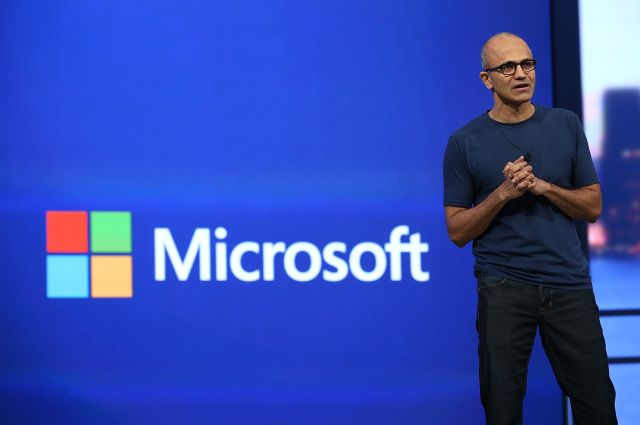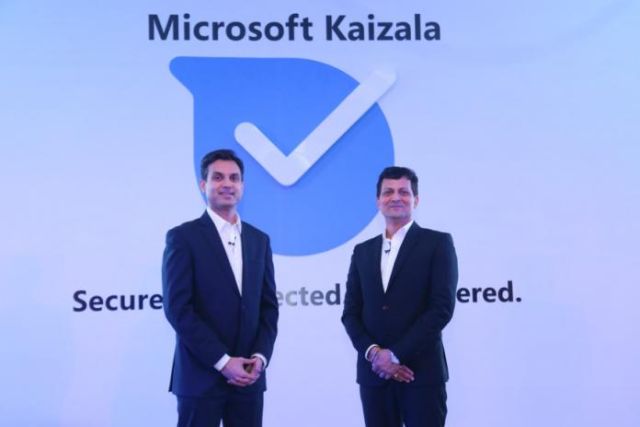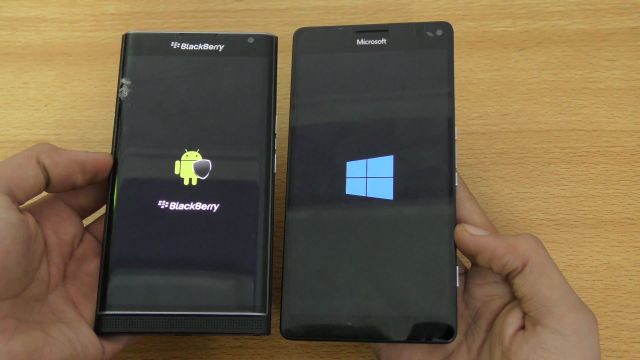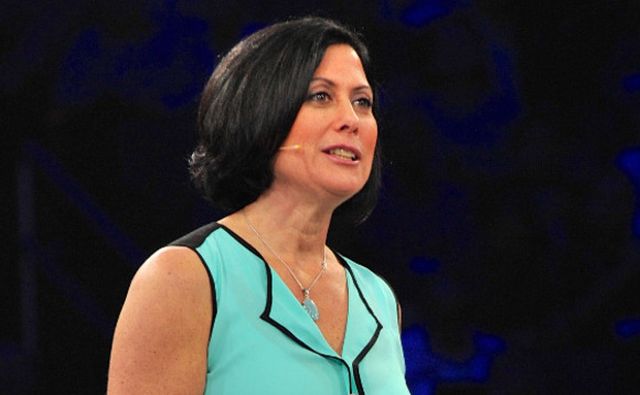
by admin | May 25, 2021 | Interviews, Markets, Technology

Satya Nadella
By Nishant Arora,
Bengaluru : Amid increasing data breaches, tech giants are today busy deliberating on how to ensure privacy and security for the users. Where Microsoft is concerned, however, data ownership clearly remains with its customers – protected by enterprise-grade security solutions.
Microsoft’s Cloud-powered Office 365 – which according to the CEO Satya Nadella is the biggest growth opportunity for the company in its history — makes up the bulk of what it calls its “Commercial Cloud” services.
According to Rajesh Jha, Executive Vice President, Office Product Group at Microsoft, there are nearly 120 million “Commercial Cloud” users globally and over 29 million of them are Office 365 enterprise subscribers — and the onus is on the company to keep its data safe and secure.
“The data ownership belongs to the customers. We are just the custodians. Our Artificial Intelligence (AI) algorithms run on massive data sets in Office 365 and show the insights back in the application to the customers – allowing them to enhance their businesses. We have hundred of capabilities today running in our Cloud,” Jha told IANS in an interview here.
According to Jha, who is part of the senior core team that reports directly to Nadella, data should always follow the users and remain in their control.
“We take the data from the users, run AI and give the inputs back to them. This is what Office 365 does — working across platforms and giving customers evergreen capabilities to keep them up-to-date, helping them innovate in a secure and safe atmosphere,” Jha explained.
Redmond-headquartered Microsoft has three local data centres in India to serve the increasing demand coming from big enterprises, small and medium businesses (SMBs) and governments.
“India is an interesting market with hundreds of millions of connected devices and a robust mobile-first workforce. Microsoft Office in earlier days catered to knowledge or information workforce but now modern workplaces with first-line, mobile-only workers are our focus in the country,” Jha emphasised.
It has been a multi-year journey for Microsoft when it comes to its Office product.
“Its roots were in the desktop, which we used to deliver as on-premise software to the customers. With Office 365, we made it cloud-enabled that can be delivered on any platform. We are very happy with its quick adoption globally, including in India,” Jha noted.
Riding on its growing Cloud business, Microsoft reported revenue of $28.9 billion for the fourth quarter that ended December 31. Office commercial products and Cloud services revenue increased 10 per cent, driven by Office 365 commercial revenue growth of 41 per cent.
The State Bank of India (SBI) has deployed Office 365 to improve communication and collaboration among its workforce — one of the largest deployments of Office 365 in the country.
“SBI was looking for a new platform for a modern workplace — a solution that would empower their employees to work in a collaborative way on the go, bring the culture change and tap individual talent. They have moved entirely to Office 365,” Jha said.
Now this is a customer, said Jha, which sets a high bar when it comes to enterprise-grade security and privacy, and Microsoft is successfully able to give SBI that.
Not just SBI, “Office 365 is across the board, be it healthcare, transportation, government, education or small businesses. It has broad-based appeal,” the Microsoft executive added.
When it comes to AI, Nadella is betting big on it and the outcome could potentially have a huge impact on the software giant’s future.
“We get billions of signals from Cloud. We take those signals and, after using AI insights, we give the results back in the customers’ core products — be it government, small businesses or enterprises,” Jha told IANS.
In December 2016, Microsoft completed the acquisition of LinkedIn, for which it paid more than $26 billion.
“You will soon hear about Office 365-LinkedIn integration. It is already there internally at Microsoft, allowing us a unified experience. LinkedIn will also come in Dynamics 365 soon,” he added.
Dynamics 365 is a product line of enterprise resource planning (ERP) and customer relationship management (CRM) applications.
The next big thing is Microsoft 365 – an intelligent solution including Office 365, Windows 10 and enterprise mobility and security that the company has recently announced.
(Nishant Arora can be contacted at nishant.a@ians.in)
—IANS

by admin | May 25, 2021 | Business, Corporate, Corporate Buzz, Investing, Markets, Medium Enterprise, Networking, Online Marketing, SMEs, Social Media, Technology
 New Delhi : With the digital payment space growing manifold in India, Microsoft is soon enabling digital payments services in its enterprise social network app “Kaizala” in the country.
New Delhi : With the digital payment space growing manifold in India, Microsoft is soon enabling digital payments services in its enterprise social network app “Kaizala” in the country.
Payment integration — via third party mobile payment infrastructure — with “Kaizala” will enable users to quickly send or receive money without having to leave the Kaizala mobile application.
“Customers have been asking about adding the payment functionality in Kaizala to complete the work flow. We are going to very soon integrate digital payment facility in the app,” Rajiv Kumar, Corporate Vice President, Office Product Group, Microsoft India, told IANS.
“The integration will take care of payments from wallet to wallet, bank to bank, credit card to bank and vice versa. It is very much customer-driven and address all stakeholders in the value chain,” Kumar added.
With “Kaizala” which has over one million users in India, users will have the option to make peer to peer payments in one to one and group chat conversations.
Launched in July 2017, “Kaizala” is now also synced with Microsoft’s fast-selling desktop product Office 365.
“To help millions of first-line workers who are mobile-first in India, Office365 family now has applications like ‘Kaizala’. The integration will help the productivity landscape grow further in India while providing a seamless work flow across industries,” Rajesh Jha, Executive Vice President, Office Product Group at Microsoft, told IANS.
Upping the ante, Microsoft has brought in “Kaizala” and “Kaizala Pro” — mobile-first products to help businesses connect with people inside and outside the organisations, easily coordinate tasks across the value chain and gain actionable insights.
“Kaizala” comes at a time when businesses and Small and Medium Enterprises (SMEs) are becoming more dispersed in the country and connecting with teams and partners gets equally crucial, especially in areas with poor Internet connectivity.
It has seen significant adoption among YES Bank, Apollo Telemedicine, United Phosphorous Limited and Kendriya Vidyalaya Sangathan, among others.
At the government level, more than 30 departments with over 70,000 workers in the Andhra Pradesh government are using “Kaizala” for real-time governance and day-to-day work.
—IANS

by admin | May 25, 2021 | Business, Large Enterprise, Markets, Technology
 San Francisco : Former rivals BlackBerry and Microsoft have announced they were collaborating to offer enterprises a solution that integrates the latter’s expertise in mobility and security with Microsoft’s Cloud and productivity apps.
San Francisco : Former rivals BlackBerry and Microsoft have announced they were collaborating to offer enterprises a solution that integrates the latter’s expertise in mobility and security with Microsoft’s Cloud and productivity apps.
Through this partnership, the tech titans have collaborated on a first-of-its-kind solution — BlackBerry Enterprise “BRIDGE”.
“We saw a need for a hyper-secure way for our customers to use native Office 365 mobile apps. BlackBerry Enterprise ‘BRIDGE’ addresses this and is an example of how BlackBerry and Microsoft continue to securely enable workforces to be highly productive in connected world,” Carl Wiese, President of Global Sales at BlackBerry, said in a statement late Monday.
“Our customers choose Microsoft 365 for productivity and collaboration tools that deliver continuous innovation. Together with BlackBerry, we will take this to the next level and provide enterprises with a new standard for secure productivity,” said Judson Althoff, Executive Vice President of Worldwide Commercial Business at Microsoft.
By making Microsoft’s mobile apps seamlessly available from within BlackBerry Dynamics, enterprise users will now have a consistent experience when opening, editing, and saving a Microsoft Office 365 file such as Excel, PowerPoint, and Word on any Android or iOS device.
As part of the collaboration, Microsoft added that BlackBerry Dynamics, along with the company’s Secure, UEM Cloud, BlackBerry Workspaces and AtHoc platforms are also now available on Azure Cloud, thus, allowing more flexibility for workers on the go.
—IANS

by admin | May 25, 2021 | Business, Corporate, Large Enterprise, Markets, Technology

Gavriella Schuster
By Nishant Arora,
New Delhi : As more and more businesses strive to embrace Cloud in India, Microsoft, with its vast partner network, is in a unique place, offering a complete Cloud platform as well as productivity and business applications, a top global executive has stressed.
For Gavriella Schuster, Corporate Vice President, One Commercial Partner Worldwide, Microsoft Corporation, the ‘Intelligent Cloud’ and ‘Intelligent Edge’ opportunities in India are pegged at $107 billion.
“Cloud services form the backbone of digital services and Microsoft stands in a unique place as it offers both a complete cloud platform and productivity and business applications,” she told IANS.
Businesses and government across the world, including in India, are increasingly looking to transform their operations digitally.
“They are aiming to have efficiency in operations, empower employees, engage better with customers, and transform their products and services,” Schuster said.
Microsoft has always been a partner-led company and 95 per cent of its revenue comes from its partner network.
At present, the company has over 9,000 partners in India, adding more than 400 partners every month.
“Our partner organisations are taking our platform and using some of those applications to develop new high-value intellectual property to help organisations digitally transform themselves,” Schuster said.
In order to work closely with its partners, Microsoft has brought them under the “One Commercial Partner” organisation.
“The ‘One Commercial Partner’ organisation has unified our partner facing workforce and narrowed our focus to building solutions, taking these solutions to market and co-selling with our partners — working as a unified team,” the executive stressed.
For example, a Microsoft partner, “Precimetrix”, is providing Jaipur Municipal Corporation Internet of Things (IoT) and analytics solutions — to help them manage street lights from a single central location. The move, along with the use of LED bulbs, has led to 80 per cent savings in energy use.
“We also have partners like ‘Progressive Infotech’ which enables its customers to capitalise on Microsoft Azure and collaborate better. Since the collaboration, Progressive has grown multifold and has seen compound quarter growth rate (CQGR) of over 17 per cent over the last seven quarters, and an increase of over 900 per cent in its employee headcount,” Schuster told IANS.
In 2015, Microsoft launched Cloud services from three local data centres in India, bringing the power of Cloud to organisations, especially those that require local data residency.
“The effort was recognised by the government as we became one of the first global Cloud service providers to achieve full accreditation from the Ministry of Electronics and Information Technology (MeitY),” Schuster said.
Microsoft, along with its partners, is offering a variety of solutions that cater to all of their needs, servicing industries, including banking, financial services and insurance (BFSI), retail, healthcare, IT/ITeS and manufacturing — all built on its platform.
“At present, we have 70 of the 100 top Bombay Stock Exchange-listed companies across sectors as well as start-ups using our Cloud. Last year, we made our Cloud services available to over 5,000 start-ups in India,” Schuster noted.
As part of its new co-sell programme, Microsoft is investing additional resources to help bring solutions to the market and connecting with the right customers.
“We are taking the end-solution that a partner has built on our platform by bringing that partner in to sell with us to those business decision-makers,” the executive informed.
“The customer benefits because they get their solutions. The partner benefits as they get increased sales. Microsoft benefits through the adoption of our platform. So that, in a nutshell, is the concept of co-selling,” Schuster told IANS.
In India, Microsoft has some interesting partner and customer cases such as Talview, a leading talent assessment technology platform.
“Its collaboration with Microsoft has pushed frontiers in application of Artificial Intelligence (AI) and Machine Learning (ML) in recruitment. It harnesses advanced data science and ML algorithms to help clients expedite hiring and reduce turnaround time,” Schuster said.
ZingHR, a hire-to-retire HR platform, has built an application to ease HR processes for organisations offering services like digital lockers, attendance mapping and employee reimbursements, among others.
The app is hosted on Azure and can be accessed by employees of an organisation on their mobile phones.
(Nishant Arora can be contacted at nishant.a@ians.in )
—IANS

by admin | May 25, 2021 | Markets, Technology
 San Francisco : Microsoft is offering up to $250,000 for identifying bugs that are similar to the “Meltdown” and “Spectre” CPU flaws.
San Francisco : Microsoft is offering up to $250,000 for identifying bugs that are similar to the “Meltdown” and “Spectre” CPU flaws.
The offering is part of Microsoft’s new limited-time bounty programme for “speculative execution” side channel vulnerabilities.
“This new class of vulnerabilities was disclosed in January 2018 and represented a major advancement in the research in this field,” Microsoft said in a blog post on Friday.
“In recognition of that threat environment change, we are launching a bounty programme to encourage research into the new class of vulnerability and the mitigations Microsoft has put in place to help mitigate this class of issues,” it added.
“Speculative execution is truly a new class of vulnerabilities, and we expect that research is already underway exploring new attack methods,” said Phillip Misner, a security group manager at Microsoft.
The bug bounty programme is open till December 31.
Intel recently confirmed a report about a potential security flaw in its chips that is vulnerable to hacking.
According to security researchers, two CPU-level vulnerabilities “Spectre” and “Meltdown” have affected all chips made in the last two decades by Intel, AMD and AMR.
Following the news of the bugs getting out, all major tech players such as Microsoft, Google, Apple, including Intel, released security patches to help protect users from potential data theft.
—IANS





